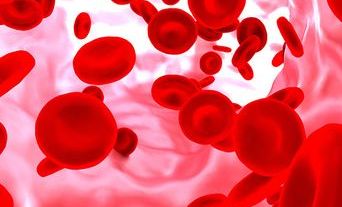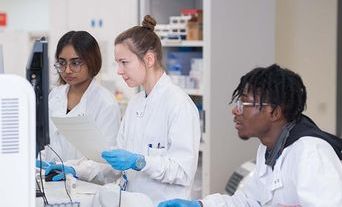We all face immense challenges in our working lives – these excellent articles provide examples of the difficulties encountered in some key areas of pathology with suggestions of how to go forward.
Workforce shortages and tackling antimicrobial resistance
Antimicrobial resistance (AMR) is a major threat to the UK and, indeed, globally. Robust surveillance, prompt diagnosis and good antimicrobial stewardship (AMS) are essential, as indicated by the UK Health Security Agency (UKHSA) in its Three Year Strategic Plan 2023–2026. While all clinicians involved in patient care need to be aware of the issues, Natasha Ratnaraja and colleagues remind us that the brunt of the responsibility for action is borne by medical microbiologists and virologists. Yet, the 2021 National Workforce Survey undertaken by British Infection Association (BIA) and the College demonstrated a high level of vacancy of 17.5% (119 of 587.1) in infection-related consultant posts.
In addition to their laboratory duties, medical microbiologists and virologists are taking on more patient-facing roles. The authors summarise some areas for focus, including newer diagnostics, pathology reconfiguration, greater skill mix of medical and biomedical staff with close ongoing working relationships with clinical colleagues. The College is also collaborating with the BIA to provide guidance to help inform workforce planning within infection services, including AMS and infection prevention and control.
The role of haemovigilance in improving transfusion safety
Around 2 million units of blood and components are transfused per annum to support patient care across the UK. Haemovigilance entails surveillance of all steps covering the transfusion chain from blood donation, processing into various components to follow-up of transfused patients. Reporting, collation and evaluation of unexpected or undesirable effects, with feedback of results to the various teams involved, helps prevent their occurrence or recurrence.
Shruthi Narayan and colleagues summarise the high levels of participation and the successes of the Serious Hazards of Transfusion UK haemovigilance scheme with more than 25 years of data accumulated since the inception of the scheme in 1996.
This has resulted in major safety initiatives around infective and immunological risks, with additional emphasis on positive patient identification to reduce errors. Key current areas of morbidity are highlighted, including transfusion-related circulatory overload, ABO mismatched transfusion, delays in transfusion and increased focus on use of IT systems to improve transfusion safety.
Consultant scientists bridging the senior workforce gap
In the face of rapid increases in pathology workload, with reduction in consultant numbers due to imminent retirements, new solutions are needed to urgently bridge the senior workforce gap. While the role of consultant scientists is very well established in some pathology specialties, greater awareness and deployment of this role is still required in other areas.
Lisa Ayers and Owen Driskell describe training pathways for consultant scientists, with the RCPath Fellowship a key requirement for eligibility to join the Higher Specialist Scientist register. Many scientists complete their training to become a consultant outside of a formal training programme. The authors highlight the Higher Specialist Scientific Training, a 5-year integrated programme funded by NHS England, summarising the current numbers of trainees in various specialties with a need for increased recruitment to address ongoing gaps.
Targeted anti-D prophylaxis
Anti-D immunoglobulin prophylaxis for RhD negative mothers is a modern success story that has greatly reduced death and disability due to haemolytic disease of the fetus and newborn (HDFN). Readily available molecular techniques now support the non-invasive testing of the fetal RHD status from a maternal blood sample taken relatively early during pregnancy. This supports targeted anti-D prophylaxis, focusing administration where required but with avoidance of unnecessary maternal exposure to anti-D as a plasma derived product.
The National Institute for Clinical Excellence and Care recommend the adoption of fetal RHD testing as part of routine NHS antenatal screening programmes. Chris Elliot indicates the advantages of this test together with uptake across the antenatal units in England served by NHS Blood and Transplant. The barriers to implementation together with future initiatives are also described.
Who does the College serve? Perspective from an England regional representative
In the final article within the themed section, Rachael Liebmann highlights the role of the College in supporting pathologists and tackling concerns encountered as 1 of the 4 regional representatives in England.
Overall, the main concerns facing College members include workload and workforce challenges, with these themes frequently raised alongside training and CPD issues. There was positive feedback in certain key areas, including the College response to the COVID-19 pandemic, 2022 Diamond Jubilee College celebrations and the development of the Pathology Portal. Ongoing efforts are needed with a new College appointment to support member engagement. Greater focus is needed in influencing decision-makers at the national and regional levels, together with utilising All-Party Parliamentary Groups to raise awareness around key pathology issues in Westminster.
I found the thoughtful articles within this theme highly informative. I will now be handing over to Professor Angharad Davies, who will be reaching out to colleagues across pathology to include ongoing issues encountered within your disciplines in future Bulletin editions.




